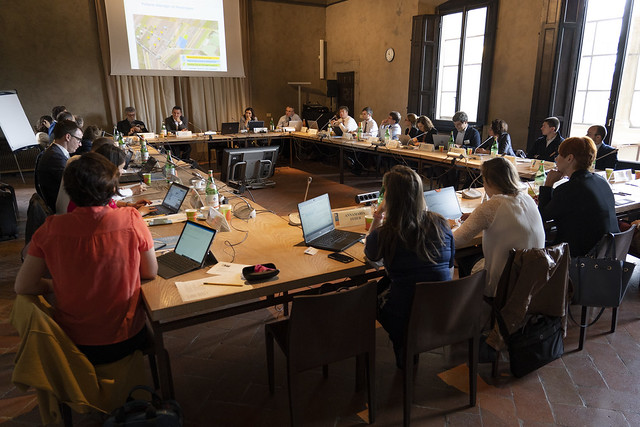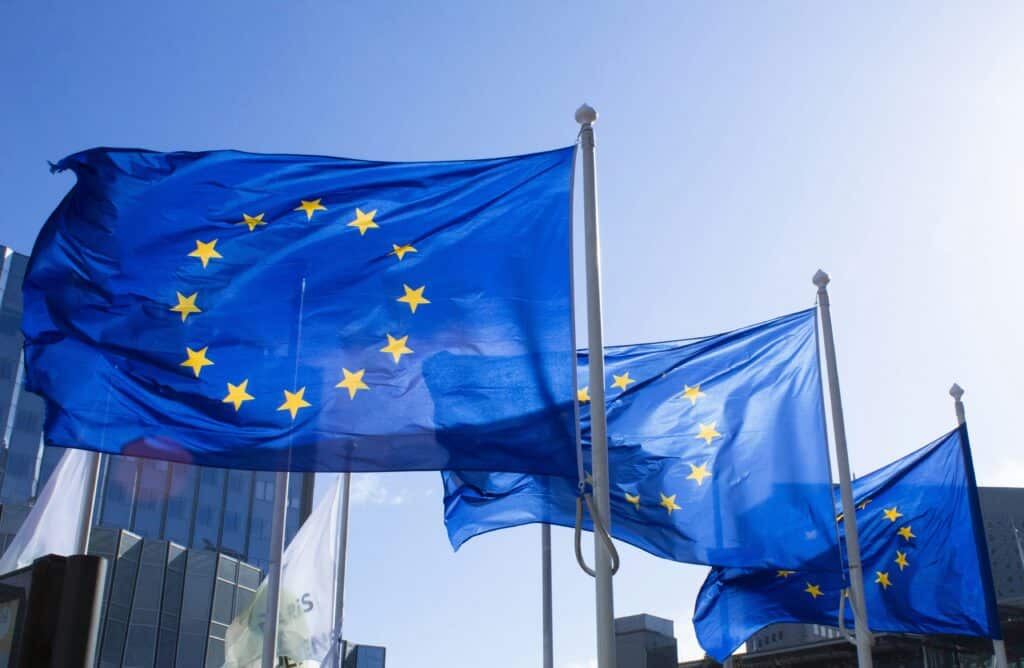On Monday 27 May 2019, the Florence School of Regulation (FSR) jointly with Gas Infrastructure Europe (GIE) hosted the policy workshop: ‘Which energy storage for the flexibility needs of a multi-energy system?’. The workshop was chaired by Ilaria Conti (FSR Head Gas Area) and Lubor Veleba (GIE Board Member, GSE President).
The programme built on a previous FSR-GIE workshop, which took place in July 2018 and focused on the role and value of energy storage. On that occasion, the discussion highlighted the value of gas storage in supporting EU’s energy and climate objectives. The concept of positive externalities generated by Storage System Operators (SSOs) was introduced and the debate centred on the need to properly value the hidden system and insurance services they provide to the energy system, which are currently not remunerated. For more information see: Unfiltered remarks from Florence (J.M. Glachant before the Madrid Forum)
This second workshop focused instead on the role of gas storage in cross-sectoral flexibility. All participants agreed that, in the future, storage is destined to become an even more essential pillar of the future EU multi-energy system. The possibility of storing electricity and hydrogen will in fact significantly contribute, in different measures and forms, to provide flexibility and stability to the future energy generation and ultimately to making sustainable.
Following the conclusions of the last Madrid Forum in October 2018, GIE launched two quantitative and qualitative studies inquiring on the value of gas storage for the energy system and on the economic and regulatory conditions that would allow its full development.
The findings of these studies were presented at the workshop. The objects of their investigation were:
- the cross-sectorial implications of a lower gas storage capacity, particularly in terms of additional system costs and risk of electricity demand curtailment
- the regulatory framework that would enable to implement market-based pricing while at the same time enabling a fair internalisation of the positive externalities (insurance and system values) that are currently being generated by the storage SSOs.
In addition to discussing the studies’ findings, the workshop aimed at illustrating a few innovative projects on Power-to-Gas, hydrogen storage and decentralised storage, implemented by Storage System Operators (SSOs). All of these projects are already in place – either in their pilot phase or fully implemented – showing that technology is versatile and allows for a flexible usage of storage.
The further development of the projects will depend on a number of elements ranging from the evolution of electricity and carbon prices, to technology and innovation pace, to even public perception and social acceptance. This general climate of uncertainty surrounding the sector makes investment decisions extremely sensitive to regulatory and policy decisions at this stage.
The second part of the workshop went more in-depth on the economics and regulatory aspects of storage. How can competition be facilitated – and enforced – while the energy system moves towards decarbonisation? Can regulation help mitigate the so-called “storage paradox” and the relative economic disadvantage experienced by gas SSOs? What would be the impact of gas storage sites closing down – particularly in some specific locations in the EU energy system? Who are to be considered the main investors and stakeholders of innovative projects like the ones presented in Session 1? While participants convened that the EU “regulatory toolkit” should be used to address these issues, they did not exclude the possibility of taking a closer look at the regulation currently in place and suggesting some potential amendments – in order to see whether some of the issues emerged with these studies can be addressed.
Indeed, while the value of storage for the system seems undisputable, the question is how to intervene to unlock its potential and make the best out of it: at EU level, national level, both? In the discussion, some examples illustrated how problems often lay at practical implementation level, rather than at EU regulatory level.
The workshop came to a close while the debate remains very much open. Participants of the workshops and FSR will continue following further the technical and economic developments of gas storage and expressed the wish that the regulatory aspects are further investigated in the context of the Madrid Regulatory Forum.








